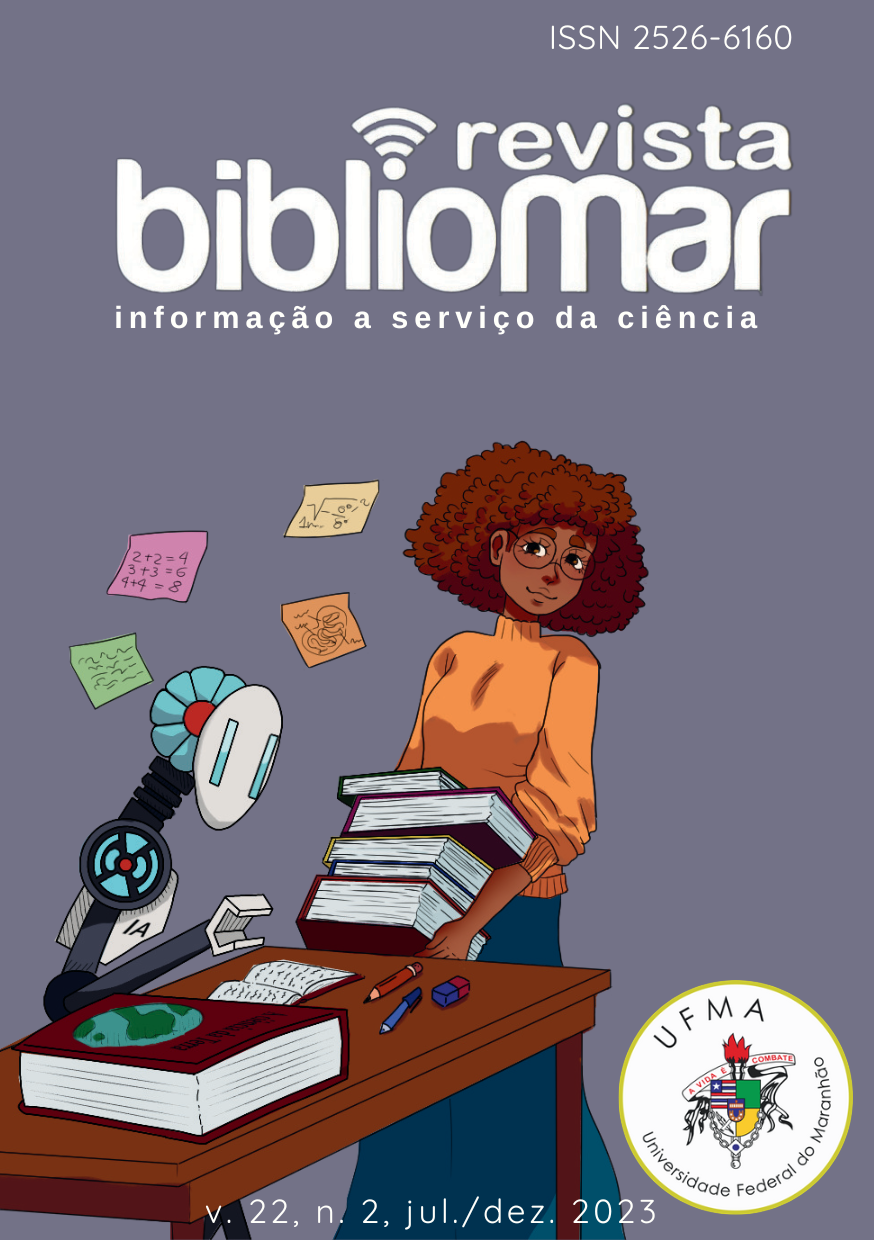WHAT HAPPENS WHEN A LIBRARIAN ASKS CHATGPT HOW IT SHOULD BE USED IN THE LIBRARY?
a test with chatbots GPT-3.5, Bing Chat, and Bard
DOI:
https://doi.org/10.18764/2526-6160v22n2.2023.10Keywords:
Artificial intelligence, OpenAI, Microsoft, Google, Library ScienceAbstract
Initial research on the possibilities of using AI-based chatbots has been gaining ground in the academic realm and is present in many fields of knowledge, if not all. The field of library science is no exception. As a field that directly deals with the production, organization, and provision of information, it is impossible to ignore such technologies. This involves not only considering how users employ them but also how library professionals can integrate them into the library's workflow. With this in mind, the objective of this essay is to present the outcomes brought about by artificial intelligence when exploring its potential utilities in libraries. The provided answers allow us to
envision an enhancement of library services with the support of chatbots like ChatGPT, Bing Chat, Bard, and many others that emerge day by day.
Downloads
References
ADETAYO, Adebowale Jeremy. Artificial intelligence chatbots in academic libraries: the rise of ChatGPT. Library Hi Tech News, [S.l.], v. 40, n. 3. Disponível em: https://doi.org/10.1108/LHTN-01-2023-0007. Acesso em: 06 ago. 2023.
BARBOSA, Xênia de Castro; BEZERRA, Ruth Ferreira. Breve introdução à história da inteligência artificial. Jamaxi, [S. l.], v. 4, n. 1, 2020. Disponível em: https://periodicos.ufac.br/index.php/jamaxi/article/view/4730. Acesso em: 11 ago. 2023.
D’ALTE, P.; D’ALTE, L. Para uma avaliação do ChatGPT como ferramenta auxiliar de escrita de textos acadêmicos. Revista Bibliomar, São Luís, v. 22, n. 1, p. 122–138, 2023. Disponível em: https://doi.org/10.18764/2526-6160v22n1.2023.6. Acesso em: 10 ago. 2023.
GENERATIVE AI. First, what is generative AI? Disponível em: https://generativeai.net/. Acesso em: 10 ago. 2023.
GOOGLE. Bard Experimental. 2023. Disponível em: https://bard.google.com/. Acesso em: 08 ago. 2023.
MICROSFOT. Bing Chat. 2023. Disponível em: https://www.bing.com/chat. Acesso em: 08 ago. 2023.
OPENAI. ChatGPT-3.5. 2023. Disponível em: https://chat.openai.com/. Acesso em: 08 ago. 2023.
RIGBY, Miriam. Artificial imaginings: ChatGPT envisions its future in academic libraries. College & Research Libraries News, [S.l.], v. 84, n. 7, 2023. Disponível em: https://doi.org/10.5860/crln.84.7.258. Acesso em: 02 ago. 2023.
SANJAY, Kumar Jha. Application of artificial intelligence in libraries and information centers services: prospects and challenges. Library Hi Tech News, v. 40 n. 7. Disponível em: https://doi.org/10.1108/LHTN-06-2023-0102. Acesso em: 10 ago. 2023.
Downloads
Published
How to Cite
Issue
Section
License

This work is licensed under a Creative Commons Attribution 4.0 International License.
DECLARAÇÃO DE RESPONSABILIDADE
Senhores editores da Revista Bibliomar,
Declaro que submeti o artigo __________________________________ para avaliação e parecer, e que estou ciente das condições para publicação nesta revista, entre as quais destaco:
a) não há omissão de ligações ou acordo de financiamento entre aqueles que venham a se interessar pela publicação deste trabalho;
b) o trabalho é original e inédito e que não foi enviado nenhum texto similar a este, sob minha autoria, a outro periódico, durante o período em que este texto estiver sob a avaliação da Revista Bibliomar;
c) este trabalho é fruto de pesquisas por mim realizadas e não há omissão de nenhum autor por mim citado.
Respeitosamente,
Loca/data____________, ______/_____/_____
Assinatura do autor(es)
DIREITOS DE PUBLICAÇÃO
Qualquer usuário poderá ter direito de:
- Compartilhar — copiar, baixar, imprimir ou redistribuir o material em qualquer suporte ou formato
- Adaptar — remixar, transformar, e criar a partir do material para qualquer fim, mesmo que comercial.
De acordo com os seguintes termos:
- Atribuição — Você deve dar o crédito apropriado, prover um link para a licença e indicar se mudanças foram feitas. Você deve fazê-lo em qualquer circunstância razoável, mas de maneira alguma que sugira ao licenciante a apoiar você ou o seu uso.
- Sem restrições adicionais — Você não pode aplicar termos jurídicos ou medidas de caráter tecnológico que restrinjam legalmente outros de fazerem algo que a licença permita.






